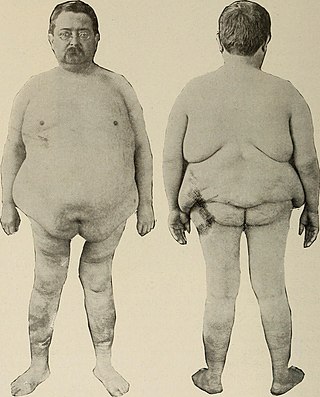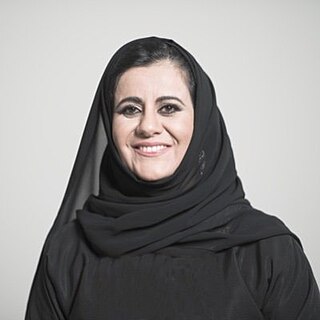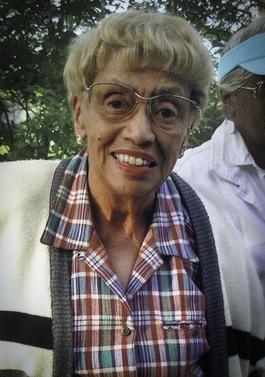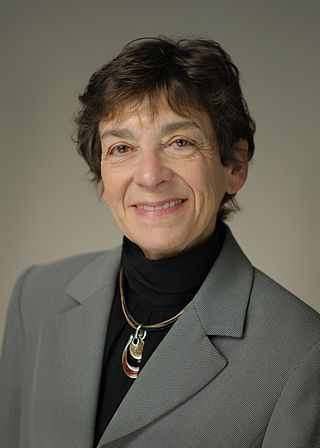
A lipoma is a benign tumor made of fat tissue. They are generally soft to the touch, movable, and painless. They usually occur just under the skin, but occasionally may be deeper. Most are less than 5 cm (2.0 in) in size. Common locations include upper back, shoulders, and abdomen. It is possible to have several lipomas.

Midwestern University (MWU) is a private medical and professional school with campuses in Downers Grove, Illinois and Glendale, Arizona. As of the 2022–23 academic year, a total of 2,758 students were enrolled at the Downers Grove campus and 3,782 were enrolled at the Glendale campus.

Lipedema is a condition that is almost exclusively found in women and results in enlargement of both legs due to deposits of fat under the skin. Women of any weight may be affected and the fat is resistant to traditional weight-loss methods. There is no cure and typically it gets worse over time, pain may be present, and people bruise more easily. Over time mobility may be reduced, and due to reduced quality of life, people often experience depression. In severe cases the trunk and upper body may be involved.

Lipomatosis is believed to be an autosomal dominant condition in which multiple lipomas are present on the body. Many discrete, encapsulated lipomas form on the trunk and extremities, with relatively few on the head and shoulders. In 1993, a genetic polymorphism within lipomas was localized to chromosome 12q15, where the HMGIC gene encodes the high-mobility-group protein isoform I-C. This is one of the most commonly found mutations in solitary lipomatous tumors but lipomas often have multiple mutations. Reciprocal translocations involving chromosomes 12q13 and 12q14 have also been observed within.

Bernadine Patricia Healy was an American cardiologist and the first female director of the National Institutes of Health (NIH).
Banner - University Medical Center Tucson (BUMCT), formerly University Medical Center and the University of Arizona Medical Center, is a private, non-profit, 649-bed acute-care teaching hospital located on the campus of the University of Arizona in Tucson, Arizona. BUMCT is the clinical partner of the University of Arizona College of Medicine – Tucson and is Southern Arizona's only trauma center for both adult and pediatric patients. BUMCT is one of two University of Arizona affiliated academic medical centers in Tucson with Banner - University Medical Center South being the other such institution. The area's only dedicated children's hospital, Banner Children's at Diamond Children's Medical Center, is located within and adjacent to BUMCT, providing care to infants, children, teens, and young adults aged 0–21.

Adiposis dolorosa is an outdated term for many years used synonymously as Dercum's disease, lipedema or Anders disease. While there are numerous references to adiposis dolorosa, it is recommended that the term no longer be used. Dercum's is now recognized as a separate condition, as is lipedema.
Dercum's disease is a rare condition characterized by multiple painful fatty tumors, called lipomas, that can grow anywhere in subcutaneous fat across the body. Sometimes referred as adiposis dolorosa in medical literature, Dercum’s disease is more of a syndrome than a disease. While the term adiposis dolorosa may be correct, the term Dercum's disease is more often used, along with the acronym DD.

Weill Cornell Medicine, originally Cornell University Medical College, is the medical school of Cornell University, located in Upper East Side, New York City.
The University of Arizona College of Medicine – Tucson, located in Tucson, Arizona, is one of four MD granting medical schools in the state of Arizona, affiliated with the University of Arizona. The University of Arizona College of Medicine – Phoenix was initially established as a branch campus in 2007, but became an independent medical school in 2012. The College of Medicine – Tucson campus is located at the University of Arizona Health Sciences (UAHS) center on the campus of the University of Arizona and is governed by the Arizona Board of Regents. Traditionally, the college accepted Arizona residents exclusively. However, beginning the 2009–2010 incoming class, the school changed its policy to allow for admission of "highly-qualified," non-residents.

Carrington College is a network of for-profit private colleges with its headquarters in Sacramento, California, and 17 locations throughout the Western United States. Established in 1967, it has a student enrollment of over 5,200 and 132,000 alumni.

Liposuction, or simply lipo, is a type of fat-removal procedure used in plastic surgery. Evidence does not support an effect on weight beyond a couple of months and does not appear to affect obesity-related problems. In the United States, liposuction is the most common cosmetic surgery.
Joe G. N. "Skip" Garcia is an American pulmonary scientist, physician and academician.

Selwa Al-Hazzaa is a Saudi ophthalmologist and head of the ophthalmology department at King Faisal Specialist Hospital. She served as the personal ophthalmologist for the late King Fahd bin Abdulaziz Al Saud. She is one of the first Saudi women to achieve international success academically and professionally. On January 11, 2013, per a Royal Decree from King Abdullah, Al-Hazzaa became one of the first ever female members of the Saudi Arabia Shoura Council.

Jewel Plummer Cobb was an American biologist, cancer researcher, professor, dean, and academic administrator. She contributed to the field of cancer research by studying the cure for melanoma. Cobb was an advocate for increasing the representation of women and students of color in universities, and she created programs to support students interested in pursuing graduate school.

Consuelo H. Wilkins is an American physician, biomedical researcher, and health equity expert. She is Senior Vice President and Senior Associate Dean for Health Equity and Inclusive Excellence at Vanderbilt University Medical Center. She is a professor of medicine in the Department of Medicine, Division of Geriatrics at Vanderbilt University School of Medicine and has a joint appointment at Meharry Medical College. She additionally serves as one of the principal investigators of the Vanderbilt Clinical and Translational Science Award, Director of the Meharry-Vanderbilt Community Engaged Research Core (CTSA) and as vice president for Health Equity at Vanderbilt University Medical Center.

Martha J. Somerman is an internationally known researcher and educator in medicine, focusing on defining the key regulators controlling development, maintenance, and regeneration of dental, oral, and craniofacial tissues. She was Chief of the Laboratory of Oral Connective Tissue Biology (LOCTB) at the National Institutes of Health's National Institute of Arthritis and Musculoskeletal and Skin Diseases (NIAMS) and Director of the National Institute of Dental and Craniofacial Research (NIDCR), a part of the National Institutes of Health (NIH) located in Bethesda, Maryland. She was the first woman to lead NIDCR. Dr. Somerman retired as the director of NIDCR on December 31, 2019, serving nine years.
Iris Roberta Bell is an American psychiatrist, professor, author and alternative medicine researcher. She is known for studying multiple chemical sensitivity and homeopathy. Bell is a longstanding environmental illness advocate, and developed the Arizona Integrative Outcomes Scale, which aims to allow patients to measure their emotional well-being. Bell has published over 140 professional papers and book chapters and has served as an editorial board member for several journals. She lives in Tucson, Arizona.

Familial multiple lipomatosis is a hereditary adipose tissue disorder that is characterized by the formation of multiple lipomas that occur in a particular distribution. The lipomas are well-encapsulated, slow-growing, benign fatty tumors. The distribution is defined as being focused in the trunk of the body and extremities. Familial Multiple Lipomatosis can be identified when multiple lipomas occur in multiple family members that span different generations. Some people may have hundreds of lipomas present.

Sherine E. Gabriel is an Egyptian–Canadian rheumatologist and administrator. She is the fourth president of Rush University and James A. Campbell, MD, Distinguished Service Professor, having formerly served as Dean of Robert Wood Johnson Medical School. In 2020, Gabriel was elected a Fellow of the National Academy of Medicine for "her leadership in academic medicine and recognition for being an inspiring thought leader in research, clinical business development and educational innovation."














